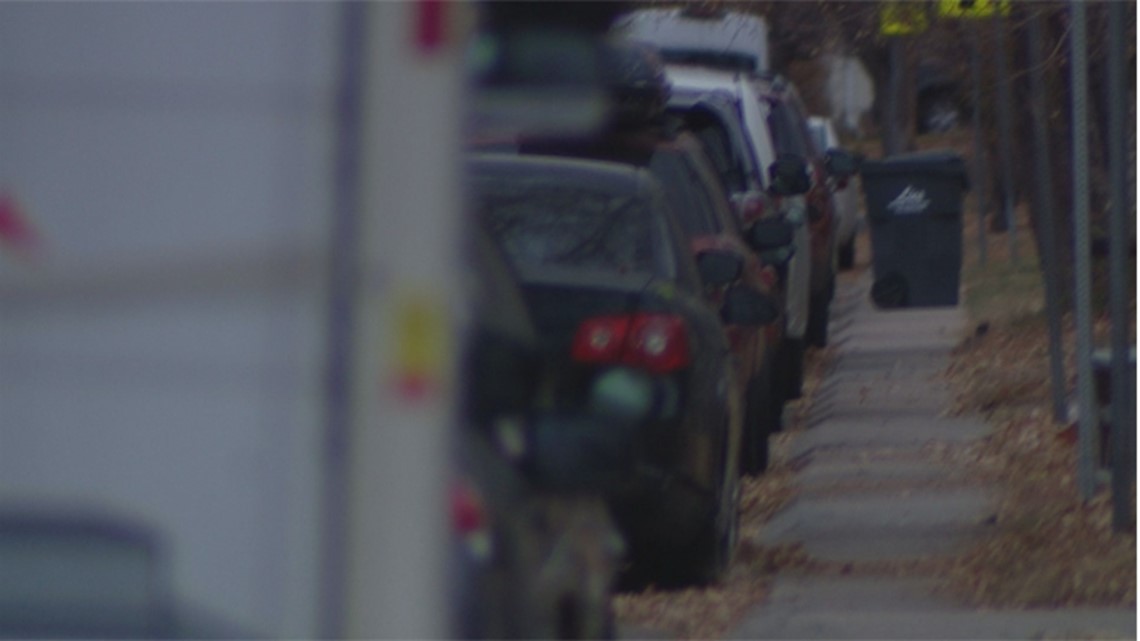AURORA, Colo. — On Wednesday, a 13-year-old girl was found safe, after she was taken by a man from her near her home in Aurora, according to the Aurora Police Department (APD).
41-yera-old Navarro Cathey was taken into custody and charges are pending, after police found the suspect with the young teenager in Utah, according to APD.
While surveillance footage helped narrow down a person of interest, it was messages that allowed investigators to zero in on why Cathey may have been in Aurora, police said.
“But it was investigators looking through phones and computers that they kind of identified him as a potential person of interest," said APD Agent Matthew Longshore on Wednesday. “Our message remains the same to parents: get involved, know what your kid’s doing on their cell phone, know what they’re doing on their computer.”
Earlier in November, an 11-year-old girl from Westminster was found safe after meeting a man online through Craigslist, according to police.
9NEWS parenting expert Dr. Sheryl Ziegler echoed Longshore's message in an interview.


"Parents should really be talking to their kids about online safety as soon as kids are getting online," Ziegler said. "So the conversation can start off with just saying, you know, asking for permission to be on setting limits and boundaries always around where they can go and for how long. And then the conversation eventually evolves anywhere between ages nine and 10 to really understanding what an online predator is. And I know a lot of times parents are really scared to talk to their kids about topics like that, but it's absolutely necessary. We know that a percentage of kids will get solicited online, and they have to be prepared and know the signs that it might be happening and know what to do."
She says oftentimes, parents say they don't know about what may be going on with their child and what they might be doing online.
"It's just being clear, you can't be nuanced and say, 'well, there can be some bad people online and...' that's just too obscure," Ziegler said. "They don't know what that means, and the truth is that the bad people online, child predators online, they don't come across as scary. So the kid needs to understand it may not feel scary. It may not even feel dangerous. It might feel really friendly. It might seem like this is almost too good to be true. Somebody is giving you a lot of compliments, or they're flattering you or they're asking you a lot of questions and not giving that much information about themselves. Those are yellow to red flags."
Because of the pandemic and online learning, Dr. Ziegler said more kids are potentially getting more adapted online and that curiosity is able to develop.
"In the YouTube example, it really allows for one video to lead to the next to the next to the next," according to Ziegler. "And with too much unsupervised time, kids get bored, they get curious and they start Googling or looking for things they're just curious about, and you never know what's going to pop up. So that's why really being clear about your boundaries and setting limits and staying engaged and involved with your kid is key to battling online predators and really educating your child."
She adds that overall, parents need to be proactive, and that includes not only looking through their child's browsing history and checking on their child when their behavior changes, but even producing some sort of contract where the parent can look through their child's phone.
"A lot of people think that's a little controversial," Ziegler said. "Is that an invasion of their privacy? I say that their brains are not developed. They are not equipped to handle what is going on online, and we're actually putting them at risk by not safeguarding them, by not saying, you know, once in a while, I may look through your phone at any given time I can take your phone and look through that. So in my opinion, in my extensive experience, the kids who do better are the kids whose parents are very straightforward, are very clear about their boundaries and the kids who know their parents may check their phone at any time."
SUGGESTED VIDEOS: Latest from 9NEWS

